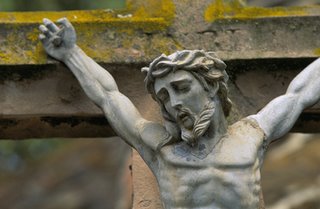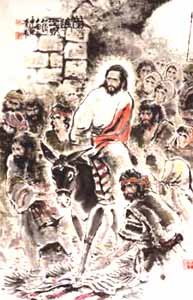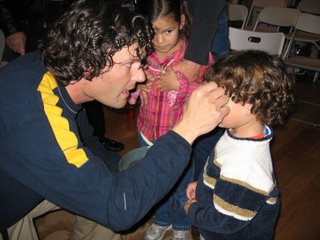
My favorite character this Christmas was Joseph.
I've never thought of Joseph before. Ever. Joseph is just kind of there...in the background...like the cow.
In most artist's renditions of the nativity scene Joseph appears to be a last-minute add-in, hidden in the background, on the edge of the spotlight.
I have friends who, at some point, lost the Jesus and the Joseph figurines to their nativity set. They replaced Jesus but didn't spring for a new Joseph.
He's "just Joseph."
The Catholic Church didn't even make Jo a saint until the 10th century. He didn't have a church named for his honor for 200 years after that.
I think most of us wonder what to do with Joseph, really.
The only editorial statement on Joseph in the entire Bible is this: Matthew writes, "Because Joseph her husband was a just man and did not want to expose [Mary] to public disgrace, he had in mind to divorce her quietly (1:19).
The word "just" (also translated righteous) essentially means "committed to doing the right thing for the sake of others."
And that's basically what Joseph does. Again and again. Quietly. In the background. On the edges of the spotlight.
Our tendency is to constantly lift up the spectacular, the prominent, the headliners. We expect God to use the Billy Grahams and the Martin Luther Kings. But the Josephs?
The truth, it seems to me, is far different. God rarely uses the spectacular. But he regularly uses the just.
I want to be more like Joseph. I want to do the right thing for the sake of others. He's just Joseph. Ya, but he's a just man.
I think the world needs more men and women who will quietly do the right thing.









